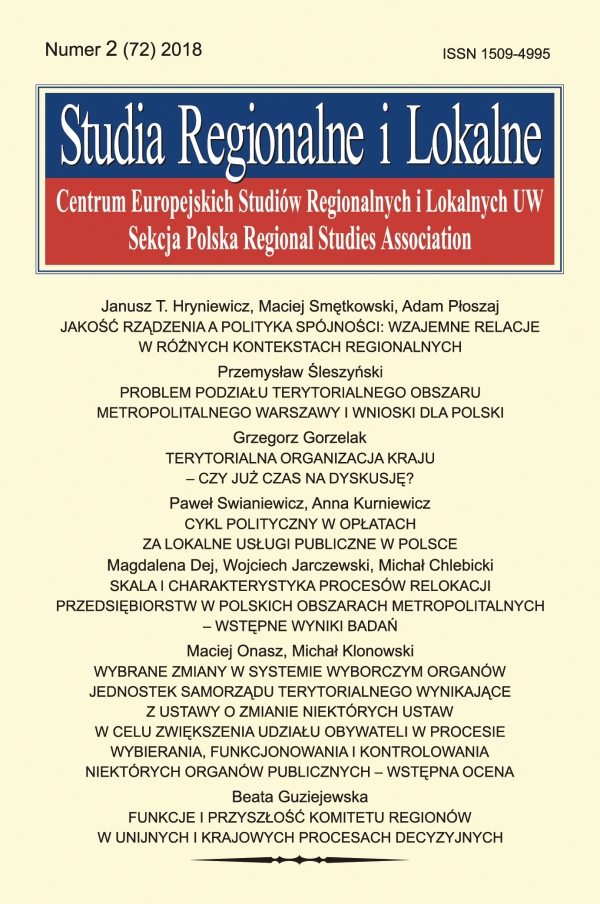Numer:
2(72)/2018
Beata Guziejewska
Funkcje i przyszłość Komitetu Regionów w unijnych i krajowych procesach decyzyjnych
DOI: 10.7366/1509499527207
Funkcje i przyszłość Komitetu Regionów w unijnych i krajowych procesach decyzyjnych
W artykule rozważam funkcje spełniane przez Komitet Regionów w procesie legislacyjnym Unii Europejskiej oraz w polityce unijnej i krajów członkowskich. Główna teza analiz opartych na metodzie dedukcji, koncentruje się wokół założenia, że w aktualnej sytuacji politycznej w Europie Komitet Regionów ma do odegrania nie tylko rolę opiniodawczą w obszarze legislacji, lecz także szerszą, fundamentalną rolę w kształtowaniu przyszłych kierunków rozwoju całej Unii Europejskiej. Rozważania prowadzone są w kontekście teorii federalizmu fiskalnego – w szczególności jednego z jej elementów, opartego na założeniu znaczenia struktury federalnej w łagodzeniu konfliktów – i w kontekście hybrydowego charakteru współczesnych modeli rozwoju. Wykorzystano w nich literaturę przedmiotu, opracowania na zlecenie Komisji Europejskiej, materiały Komitetu Regionów, dotychczasowe wyniki badań i tzw. raporty wpływu Komitetu Regionów opublikowane w latach 2014–2017.
Functions and future of the European Committee of the Regions within EU and national decision-making processes
The article discusses the functions of the Committee of the Regions with respect to the legislative process and politics of the European Union, as well as to the politics of the Member States. The main assumption of the analysis, based on the deductive method, is that because of the current political situation in Europe, in addition to being a body giving opinions on the law, the Committee of the Regions should have a greater, fundamental role in shaping the future directions of development for the entire European Union. The discussion is set in the context of fiscal federalism theory and one of its elements assuming that a federal structure has a role in mitigating conflicts, as well as referring to the hybrid nature of the contemporary models of development. It is underpinned by the relevant literature, analyses commissioned by the European Commission, materials of the Committee of the Regions, findings of earlier studies, and the so-called impact reports of the Committee of the Regions published from 2014 to 2017.



